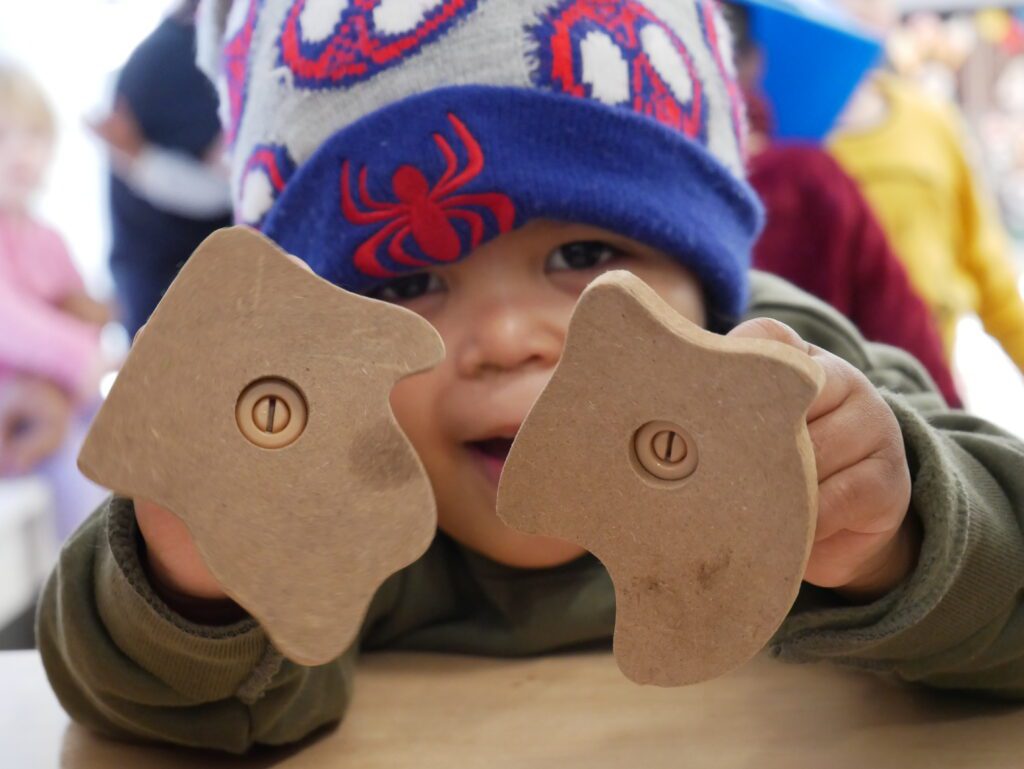A busy February for early education
Early Bird readers, hello again. Newcomers, welcome! If you were forwarded this email, you can sign up here to receive it every two weeks, and join our conversation on issues facing North Carolina’s young children and those who support them. If you’re already a subscriber, please help us reach more people by sharing this with your friends and co-workers interested in early childhood education.


In January, we were focused on bringing you lessons from our fall travels to five other states leading the way in early childhood policy and investment. If you haven’t already, spend some time with this piece and share it with someone wondering why child care is so expensive and hard to find — and what can be done to change that.
This month, we’ve been diving right back into North Carolina’s early childhood news. There’s a lot going on.
- We kicked off Black History Month with a visit to Kate’s Korner alongside Isabel Casillas Guzman, head of the U.S. Small Business Administration. Guzman highlighted the child care center as “a foundational business” — one that supports other businesses. Owner Kate Goodwin shared child care programs’ dire need for funding and her vision for sustainable and empowering child care across Durham and beyond.
- We got big news from the state’s two-year Tri-Share child care pilot with the announcement of the three participating regions (including 14 counties). The pilot, passed in last year’s budget, will split the cost of child care between participating businesses, eligible employees, and the state government. It’s based on a model in Michigan we studied in September.
- Katie has the latest on child care closures as the state heads toward a funding cliff that will come at the end of June if there is no funding intervention by the state or federal government. We’ve lost 4% of licensed programs since February 2020. The state’s legislative short session starts in April, with just a couple of months to help programs survive and mitigate additional teacher turnover and tuition increases for parents.
- Last week, the Child Care Commission approved a framework for a new quality rating and improvement system (QRIS) for licensed child care. Any changes will not be implemented until the end of 2025 at the earliest. But the reform process has brought up questions about what makes a program high-quality and what requirements are fair without funding attached to them.
We are excited to keep making sense of the news and policy that shapes realities for young children, their families, and their educators — and lifting up your stories every step of the way.
As always, please reach out with questions, story ideas, and your challenges and successes serving young children.
Thank you for all you do.
More from EdNC on early childhood
'Seedlings' promote kindergarten readiness in this N.C. classroom
Inside a classroom at the Ashe Early Learning Center, a group of small children sit in a circle with their...Child Care Commission approves new framework for measuring child care quality
North Carolina’s system for rating child care quality is under revision as child care programs face a financial cliff this...Perspective | Breaking down barriers for students at Cape Fear Community College
Many community college students begin their studies hoping to complete their programs in two years or less. However, students often...Small Business Administration celebrates 'foundational' Black-owned child care center in Durham
The U.S. Small Business Administration (SBA) kicked off Black History Month in Durham on Thursday with a visit to Kate’s...North Carolina loses more licensed child care programs as funding cliff approaches
North Carolina has lost almost 4% of its licensed child care programs since the start of the pandemic, according to...Employees in these 14 counties could be eligible to split cost of child care with employers and state in pilot
Editor’s Note: This article was updated on Feb. 5, 2024, with information on the timeline of the pilot’s launch. With...The big picture for little kids
News & Research
-
The hidden cost of unpaid caregiving is less money for retirement - From The Washington Post
-
Essay: How the Enduring Belief About Child Care – I Don't Want Someone Else Raising My Kid – Hurts Us All - From Early Learning Nation
-
State Advances in Early Childhood Education Seed Plans for 2024 - From National Association of State Boards of Education
-
With Arrival of Child Care Cliff, Some States Have Stepped in to Save the Sector - From The Century Foundation
-
This Colorado county aimed to create thousands more child care slots. Here’s how it went. - From Chalkbeat
-
The 19th Explains: There’s no guide to looking for child care. We made one. - From The 19th News
Taking flight! Opportunities to spread your wings
-
Present at annual PBS event - From PBS North Carolina
Proposals are open to host a break-out session at PBS’s annual Impact Early Childhood Education Summit on June 1 at East Carolina University and online.
Proposals are due February 26, and they’re looking for presentations that “demonstrate innovative and forward-thinking, show an impact on early childhood education, share experiences and opportunities, and engage diverse learners.”
-
Grow your leadership skills - From Zero to Three
From Zero to Three’s newsletter on its early childhood leadership fellowship, with applications due March 20 by midnight: “Our fellows are a diverse group of professionals from various disciplines and sectors, united by a shared vision to be change agents transforming programs, systems and policies to ensure babies, toddlers and families have what they need to thrive.”
The 18-month program includes four retreats, a curriculum, intensive coaching, and financial support.
-
Learn about funding options for child care - From The Children's Funding Project
Feb 29 at 1:30 pm EST
From the organizer: “To secure stable and sustained funding, state and local leaders and advocates must understand (1) their existing investments in children and youth, (2) the true cost of funding their goals for kids, and (3) options for filling any gaps between existing funding and needed funding. This webinar will discuss how a children’s funding coordinator can help communities knit these three components together through fiscal mapping, cost modeling, and sourcing additional funding.”



